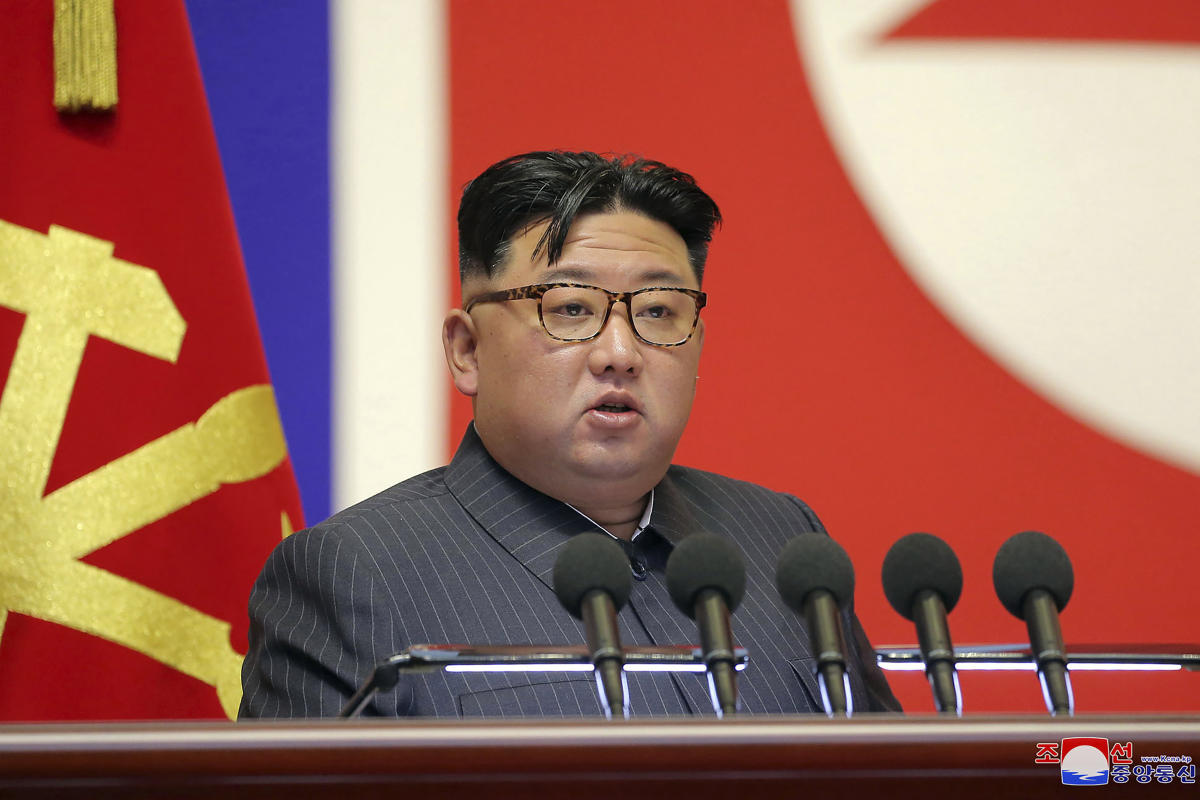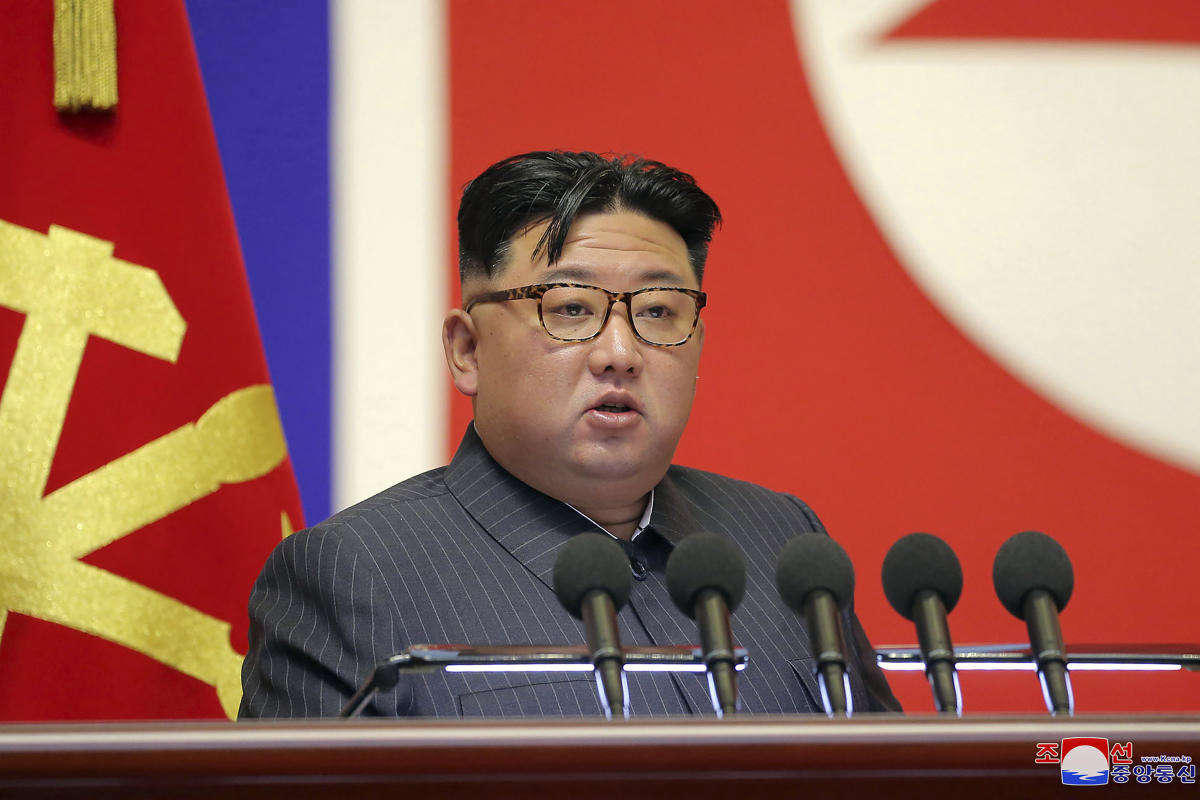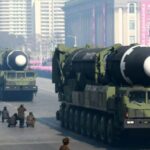
SEOUL, South Korea (AP) — North Korean leader Kim Jong Un says his country will never abandon the nuclear weapons and missiles it needs to counter the United States, which he accused of pushing a pressure campaign to weaken the North’s defenses and eventually collapse his government.
State media said Friday that Kim made the comments during a speech at North Korea’s rubber-stamp parliament on Thursday where members also passed a law that authorized North Korea’s military to “automatically” execute nuclear strikes against enemy forces if its leadership comes under attack.
He also criticized rival South Korea over its plans to expand its conventional strike capabilities and revive large-scale military exercises with the United States to counter the North’s growing threats, describing them as a “dangerous” military action that raises tensions.
Kim has made increasingly provocative threats of nuclear conflict toward the United States and its allies in Asia in recent months, also warning that the North would proactively use its nuclear weapons when threatened. His latest comments underscored the growing animosity in the region as he accelerates the expansion of his nuclear weapons and missiles program.
Kim also addressed domestic issues in his speech, saying North Korea would begin its long-delayed rollout of COVID-19 vaccines in November. He didn’t specify how many doses it would have, where they would come from, or how they would be administered across his population of 26 million people.
GAVI, the nonprofit that runs the U.N.-backed COVAX distribution program, said in June it understood North Korea had accepted an offer of vaccines from China. GAVI said at the time the specifics of the offer were unclear.
Kim’s speech came a day after South Korea extended its latest olive branch, proposing a meeting with North Korea to resume temporary reunions of aging relatives separated by the 1950-53 Korean War, which were last held in 2018.
Experts say it’s highly unlikely North Korea would accept the South’s offer considering the stark deterioration in inter-Korean ties amid the stalemate in larger nuclear talks between Washington and Pyongyang. The U.S.-North Korean diplomacy derailed in 2019 over disagreements in exchanging the release of crippling sanctions against the North and the North’s denuclearization steps.
The U.S.-led diplomatic push to defuse the nuclear standoff has been further complicated by an intensifying U.S.-China rivalry and Russia’s war on Ukraine, which deepened the divide in the U.N. Security Council, where Beijing and Moscow have blocked U.S. efforts to tighten sanctions on Pyongyang over its revived long-range missile tests this year.
Kim has dialed up weapons tests to a record pace in 2020, launching more than 30 ballistic weapons, including the first demonstrations of his intercontinental ballistic missiles since 2017.
U.S. and South Korean officials say Kim may up the ante soon by ordering the North’s first nuclear test in five years as he pushes a brinkmanship aimed at forcing Washington to accept the idea of the North as a nuclear power and negotiating concessions from a position of strength.
Experts say Kim is also trying to strengthen his leverage by strengthening his cooperation with China and Russia in an emerging partnership aimed at undercutting U.S. influence.
U.S. officials said this week the Russians are in the process of purchasing North Korean ammunition, including artillery shells and rockets, to ease their supply shortages in the war against Ukraine.
North Korea also has joined Russia and Syria as the only nations to recognize the independence of two pro-Russia breakaway territories in eastern Ukraine and has discussed send its construction workers to those regions to work on rebuilding.




